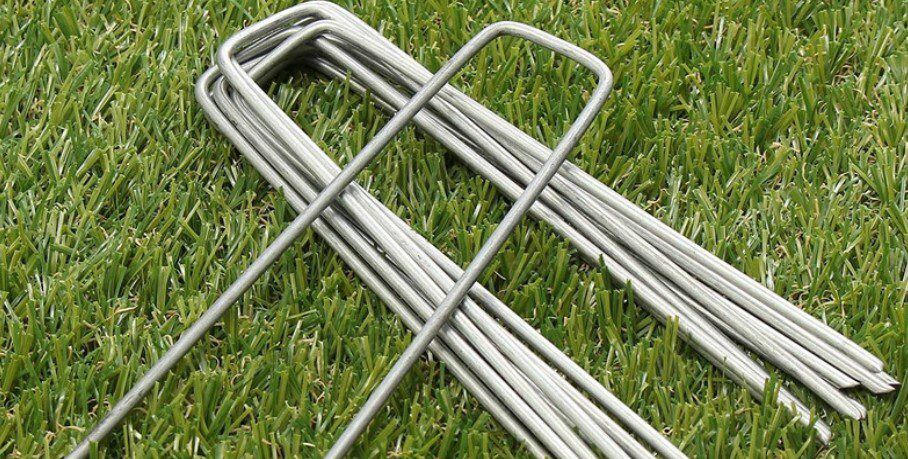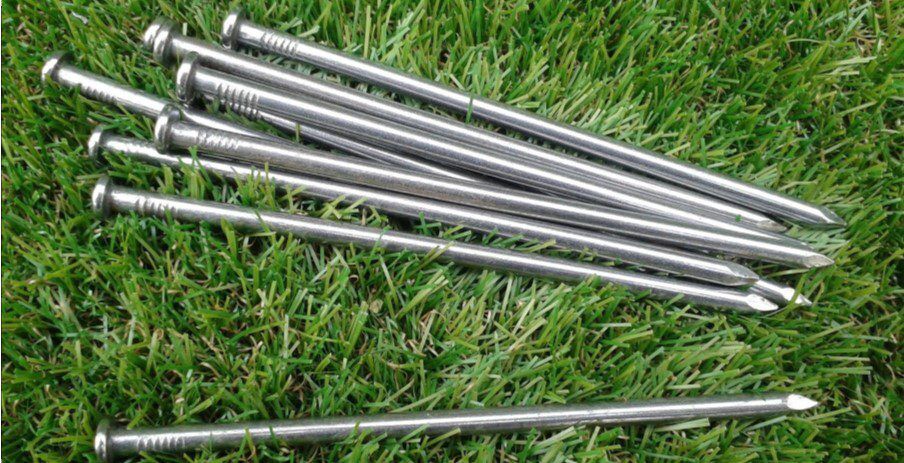Artificial Grass Hardware
Select the best artificial grass hardware for your artificial turf landscape installation. Use specialty nails or staples along the perimeter, enabling you to pull seam edges closer together, reduce visibility in the seams, and create a smoother turf landscape. Choosing the right hardware helps to secure turf in place and prevent seams from shifting in the future.
Secure the turf by staking the edges with 5″-6″ nails or staples. Space the hardware along the perimeter edge approximately 3″-6″ apart. Repeat the process for treated lumber, bender board, or poly board around the border.
Artificial Grass Hardware Options
Staples
Much like the staples you use to secure paper together, our flat-topped 6-inch gauge staples are much larger and serve a greater purpose when it comes to artificial turf installation. The U-shaped, 9-Gauge sod staples are ideal for securing artificial turf seams and erosion blankets or geotextiles in place. The legs of the staples are 6 in. long, and the arch of the staples is 1 in. wide.
Features
- 6 in. Long staples dig into soil or base rock for good grip.
- U-shaped design for easy installation.
- Holds landscape fabrics in place.
- It can also the staples to secure irrigation hoses.
- 9-Gauge un-galvanized wire.


Nails
Featured as the “glue” that holds your project together, Artificial Grass Nails are designed with turf installation in mind. They are six-inch non-galvanized nails that will expand over time to secure your turf further. When properly used, these nails will give you one more reason to be worry-free!
Artificial Grass Nails are generally installed every 3-6 inches along the perimeter and every 2 feet in the center in the field. The amount of nails used varies with the shape of the artificial grass installation, the size of the installation, and the amount of seaming the installation requires. For example, a 400 square foot installation that is 4’ × 100’ would require more nails than a 400 square foot installation that is a 20’ × 20’ area. Your exact project size, layout, seaming patterns, etc., will determine how many nails are required.

